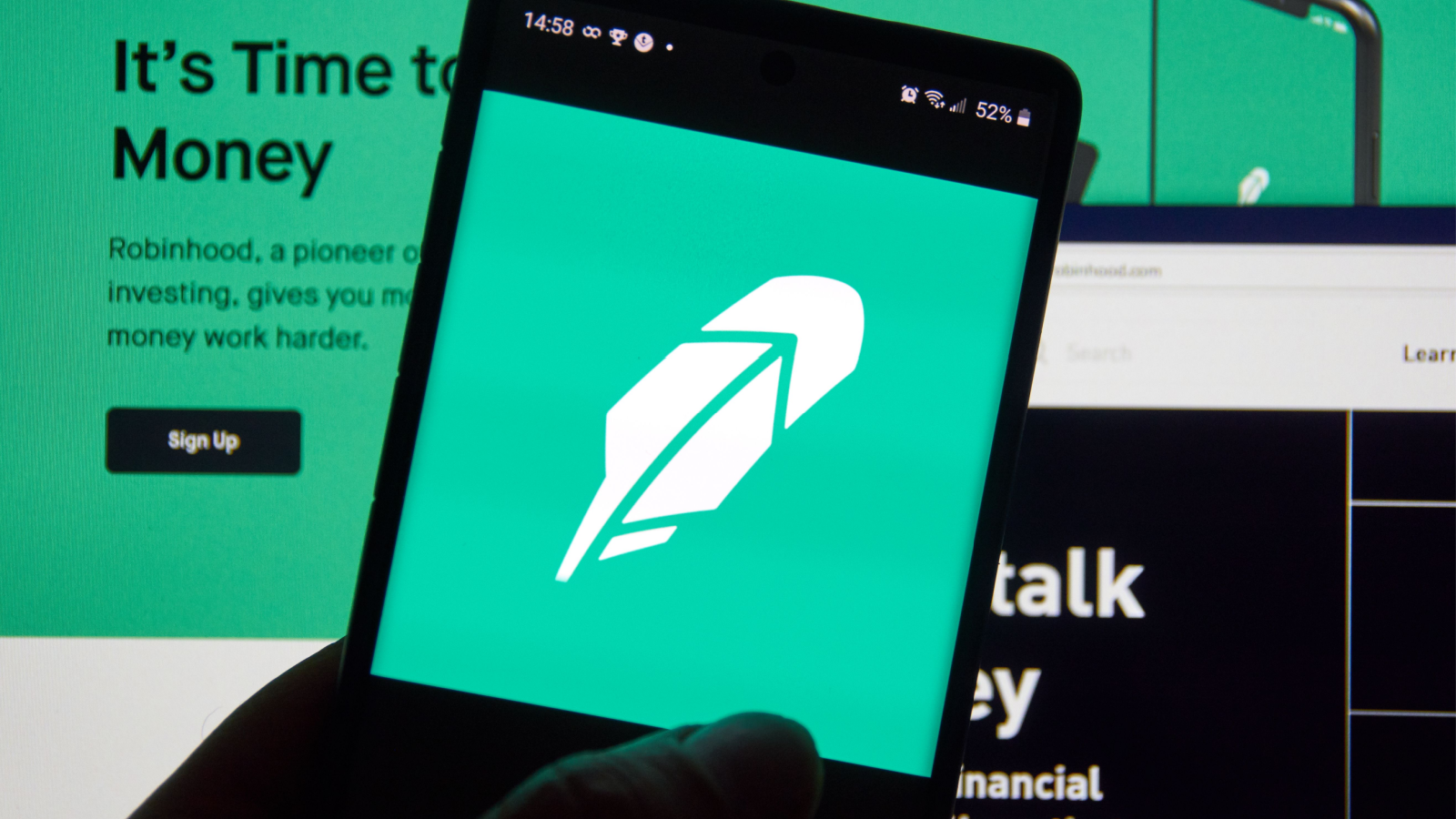If you’re only looking for a risk-free, “steady Eddie” financial-sector holding, then you probably don’t want to invest in Robinhood Markets (NASDAQ:HOOD). Bear in mind, Robinhood isn’t a traditional broker and trading platform. Still, risk-tolerant folks may find valid reasons to own Robinhood stock, so we’re assigning it a “B” grade.
Robinhood became famous as a fee-free stock-trading platform. Now, the company is more diversified and even offers a credit card.
But again, diversification doesn’t make Robinhood completely risk-free for investors. As the company immerses itself in the volatile world of blockchain based assets, safety seekers might choose to steer clear.
Robinhood May Benefit as Its Clients Mature
Not long ago, KBW analysts initiated their coverage of Robinhood stock with a “market perform” rating and a moderately optimistic $20 price target. In their view, Robinhood has room to potentially grow along with the wealth of its customers.
Unlike old-school, traditional brokers, Robinhood appeals to younger millennial and Generation Z/Zoomer investors. That’s not necessarily a bad thing, since these traders should collectively control more wealth as they age.
Interestingly, the KBW analysts observed that Robinhood only controls an approximate 1% share of “U.S. self-directed assets,” but around a “20% share of estimated total U.S. self-direct brokerage accounts.”
Furthermore, the analysts believe that there’s room for Robinhood to “outpace the overall asset growth in the self-directed industry as its core client cohort matures.”
This line of reasoning makes sense. A vast amount of wealth could transfer from legacy brokers to Robinhood in the coming years and decades. This, therefore, is a pillar of the long-term bullish argument for Robinhood stock.
Robinhood Stock Gets Downgraded on Crypto Risks
To counter the KBW analysts’ moderately bullish argument, Citigroup analyst Christopher Allen recently offered a much less optimistic take.
In fact, Allen actually downgraded Robinhood shares from “neutral” to an outright “sell” rating. He also published a $16 price target on the stock, which is substantially lower than the KBW analysts’ $20 price target.
Allen made no bones about his cryptocurrency-related concerns. “We see risks to [Robinhood] stock here on any material pullback” in Bitcoin (BTC-USD) prices, he warned.
On this topic, Allen served up some startling stats. Per Barron’s, Allen found that Robinhood stock has a “92% correlation with Bitcoin in 2024 despite crypto only accounting for an estimated 13% of first quarter revenue.”
Allen’s downgrade may be harsh, but his point is duly noted. If you’re risk averse or just aren’t a Bitcoin believer, then you really shouldn’t feel comfortable investing in Robinhood.
Robinhood Stock: Prepare for Growth and Volatility
Because of the company’s crypto connection, investing in Robinhood probably won’t be an ultrasmooth ride. So, it doesn’t make much sense for “steady Eddies” and Bitcoin critics to take a long-term share position in Robinhood.
On the other hand, Robinhood’s investors may be rewarded with growth if they’re willing to tolerate some volatility. After all, Robinhood has captured the attention and patronage of younger clients whose wealth should grow over time. Therefore, we’re giving Robinhood stock a “B” grade, and we find it to be appropriate for some but not necessarily all portfolios.
On the date of publication, neither Louis Navellier nor the InvestorPlace Research Staff member primarily responsible for this article held (either directly or indirectly) any positions in the securities mentioned in this article.
